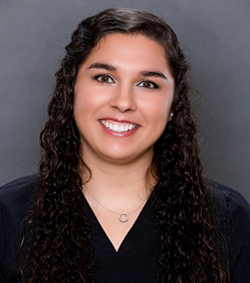
Sexual Assault Evidence Collection (SANE) Education for Texas Nurses
Emergency room nurses are the most common nurses that will care for a sexual assault survivor in the time period most recently following the assault. It is imperative that sexual assault victims have access to and receive patient-centered and trauma-informed care that addresses their medical, legal, and psychosocial needs. The purpose of this course is to educate Texas nurses on their role in caring for victims of sexual assault, based on the current best practices as put forth by the Texas Evidence Collection Protocol.
This course fulfills the Texas Board of Nursing requirement for CNE relevant to forensic evidence collection, Board Rule 216.3(d): "Any nurse who is employed in an emergency room (ER) setting, including any nurse who could float to an ER or have shifts scheduled in an ER, as well as any nurse employed under contractual, temporary, per diem, agency, traveling, or another employment relationship whose duties include working in an ER must complete at least 2 contact hours of CNE relevant to forensic evidence collection and age or population-specific nursing interventions that may be required by other laws and/or are necessary in order to assure evidence collection that meets requirements under the Government Code §420.031 regarding use of an Attorney General-approved evidence collection kit and protocol.
Content may also include documentation, history-taking skills, use of sexual assault kit, survivor symptoms, and emotional and psychological support interventions for victims.
This is a one-time requirement within two years of the initial date of the nurse’s employment in an ER setting. (Maintain record of course completion indefinitely, even if you change employment.)"
Questions? Check out our FAQs page and How Online IV Certification Works!
Objectives
Upon completion of the course, participants will be able to:
- Recite the proper terms used in a forensic medical exam.
- State the role(s) of nurses caring for sexual assault victims.
- Define informed consent and how to obtain it in cases of child or non-English speaking victims.
- Identify ways to provide patient-centered care in their practice.
- Differentiate reporting vs non-reporting cases.
- Discuss pregnancy, HIV, and STD prevention options following sexual assault.
Curriculum
Chapter 1: Introduction
- CNE Requirements
- Terms & Definitions
Chapter 2: Scope of the Problem and Nurse’s Role
- Sexual Assault in Texas
- What is a SANE?
- The Nurse's Role
- A Multidisciplinary Approach
Chapter 3: Evidence Collection Best Practices
- Informed Consent
- Advocates & Interpreters
- Recommended Equipment
- Texas Evidence Collection Protocol - Adult/Adolescent
- Texas Evidence Collection Protocol - Prepubescent Child
Chapter 4: Patient-Centered Care
- Patient-Centered Care
- Trauma-Informed Care
- Advocates and Interpreters
- Discharge Planning Process
Chapter 5: Documentation and Reporting
- Injury Documentation
- Body Diagrams
- Photographic Documentation
- Reporting to Law Enforcement
- Non-Reporting
- Mandatory Reporting
Chapter 6: Pregnancy, HIV and STD Prevention
- STD/STI Prevention
- HIV Prevention
- Pregnancy Prevention
Chapter 7: References
- California Bill 241
- Implicit Bias in Healthcare
- What is Implicit Bias?
- Implications of Implicit Bias in Healthcare
- How to Reduce Implicit Bias
Price: $24.00
Contact Hours: 2

Course Author

Kendall Moore
Kendall is a 2022 Magna Cum Laude graduate from Tyler Junior College with an Associate Degree in Nursing. She has a deep passion for nutrition and hormone health, is a member of the American Holistic Nurses Association, and is currently enrolled in Pacific College's RN-to-BSN in Holistic Nursing program. Upon graduation, Kendall intends to begin a Nutritional Therapy Practitioner program to further expand her expertise.
In addition to her academic and professional pursuits, Kendall serves as the Chief Operating Officer of Pedagogy, where she manages the day-to-day operations of the company while simultaneously attending school and authoring educational courses. Her unique blend of leadership, clinical knowledge, and dedication to holistic health reflects her commitment to advancing both patient care and healthcare education.
Read Full BioCourse Accreditation
See our Accreditation Statements page to view our accreditation information.